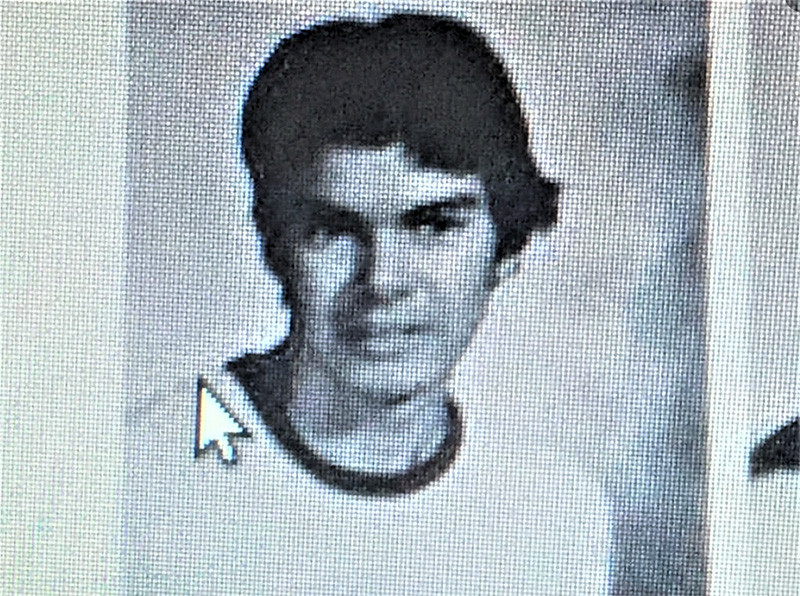James McIntyre was shot and killed by an RCMP officer in Dawson Creek more than five years ago in a bizarre incident that baffled his family and shocked the British Columbia community.
But the inquest into his death wasn’t held until this fall, leaving critical questions about the killing unanswered for years.
The case wasn’t an anomaly. Peter de Groot was shot and killed by police in 2014. Shirley Williams and son Jovan were killed by police in April 2016. Jocelyn Nynah Marsha George died in police custody in June 2016. Craig Ford was shot and killed by police in June 2016.
Inquests haven’t been held in any of the four cases, with the pandemic blamed for the most recent delays.
Why does it take years before inquests are held in deaths involving police?
Two organizations are charged with investigating police-involved shootings in the province: The Independent Investigations Office and the BC Coroners Service.
The IIO investigates to determine if any criminal charges are warranted. The Coroners Service determines the cause of death and makes recommendations on how to prevent similar deaths in the future.
Neither accepted responsibility for the five-year delay when questioned by The Tyee.
McIntyre was killed on a July evening in 2015. The 48-year-old restaurant worker and environmentalist showed up outside a BC Hydro presentation on the Site C dam wearing an Anonymous mask. Two RCMP officers were there, called for an unrelated minor incident. They were on their way out when they encountered McIntyre in a hoodie and the mask, holding a knife. He lunged at them. One officer used pepper spray. When McIntyre didn’t obey commands to drop the weapon, an officer fired one shot. By the time paramedics arrived, he was dead.
The killing captured wide media attention, fuelled in part by a publicity stunt by the activist group Anonymous, which referred to McIntyre as a “fallen comrade.” He had no known affiliation with the group.
Everything about McIntyre’s death raised questions.
His mother, Veronica McIntyre, struggled to understand. “He was never in trouble. It’s devastating for me... I will never know what got into him that evening,” she told the Dawson Creek Mirror.
But the family, community and police officers and paramedics waited more than five years for answers, and recommendations that could prevent other deaths.
That shouldn’t happen, says Don Sorochan, who has practised law for 50 years and participated in inquests in several capacities, including acting for families of people killed by police.
Sorochan said the slow pace of some IIO investigations into whether criminal charges are warranted is a factor. They have to be completed before the Coroners Service “even start to think about holding” an inquest, he said.
And the IIO investigations can drag on, he said.
“There’s often reluctance on the part of police officers and their legal advisers to have police officers participate in the investigation,” Sorochan said, “which always makes it longer, because then the police authorities have to try to get their facts from other witnesses.”
But Sorochan says the Coroners Service has “no reason’ to wait four years or more before holding an inquest.
“They aren’t supposed to be making a historical finding,” he said. “They’re supposed to be reporting what happened in a community and giving the community the verdict of the coroner as to why this death occurred.”
“That shouldn’t be a matter of trying to remember something... that happened five years ago.”
The inquest into McIntyre’s death, live-streamed to the media from a Dawson Creek court room, revealed another problem caused by the long delay.
Witnesses struggled to recall the hours a man wearing an Anonymous mask died outside of a BC Hydro presentation on Site C, their memories fading as the years passed.
The inquest into his death was a quiet affair, attended by a few journalists and those directly involved in the case. His family did not attend, nor did any friends. Only a former employee testified to McIntyre’s character, saying that she had no reason to believe he was a violent or radical person.
The inquest jury for the hearing concluded that McIntyre bled to death after being shot in the right side of his groin and ruled the case a homicide. They recommended better first aid training for RCMP officers and that first aid kits, including supplies to stop serious bleeding, should be in all RCMP cars. And they called for an IIO office in the region to allow faster response.
Measures that might have already been in place for years if the inquest had been held earlier.
Why the delays?
The IIO released its final report 16 months after McIntyre died, finding no charges were warranted.
Chief Civilian Director Ron MacDonald says the amount of time the investigation took was “standard” at the time, although he refers to the McIntyre case as “very detailed.”
“We interviewed 37 civilian witnesses, three witness officers, paramedics. We did forensic testing of firearms. We reviewed a variety of closed-circuit television and other videos that were provided by citizens. That all has to be correlated,” he says.
MacDonald makes the official decision as to whether or not an official has committed a criminal offence. This decision with an attached report is then passed onto the coroner’s service, which uses it to begin an investigation.
But the coroner’s inquest wasn’t held for almost four more years.
“As for the reason why it then takes four more years to come to a coroner’s inquest, I really can’t answer that,” MacDonald says.
He acknowledges that delays in the Canadian legal system have a negative impact on everybody involved.
“It certainly impacts the individual who’s been injured by the police or their family. If someone’s been killed, it certainly impacts the police officers who are being investigated. It certainly impacts the agencies whose police officers are being investigated, and it impacts the public at large,” says MacDonald.
The IIO has now committed to concluding all of its investigations within 18 months.
No one from the BC Coroners Service would be interviewed about the reasons for the multi-year delays.
In an emailed statement, a spokesperson did not provide reasons the McIntyre inquest was not held earlier and suggested The Tyee file a freedom of information request. It also said that the coroner in McIntyre’s case, Michael Egilson, would not be available for an interview.
“Coroner’s investigations can take some time, depending on their complexity and circumstances,” the statement said. “Scheduling inquests, particularly those being held outside the Lower Mainland, can also take some time due to court and counsel availability as well as weather limiting when some locations, such as Dawson Creek, can be used.
“In this case, the IIO was conducting a concurrent investigation into Mr. McIntyre’s death. So as not to jeopardize the IIO investigation, and to ensure that the findings of the IIO investigation were available to the coroner, the Coroners Service investigation was paused,” the statement said. “This is routine in cases where the IIO is also investigating. Once the IIO’s investigative report was received, the coroner’s investigation resumed and resulted in direction from the chief coroner that an inquest be held.”
But the IIO investigation was finished in November 2016.
Former BC Coroners Service spokesperson Andy Watson, who just stepped down from the position, sympathizes with the people affected by legal delays for cases like McIntyre’s but had no clear explanation for the chronic delays.
“It’s unfortunate that this process has taken so long, but I don’t think there’s any single agency that’s to blame here,” he says. “It’s just that when you have multiple agencies involved in investigations, particularly with fatalities, these processes can certainly take longer than anyone wants them to.”
Sorochan says there’s no excuse for the delays and the coroner’s service bears responsibility for not finding ways to speed things up and deliver on its responsibility to provide answers.
The veteran lawyer says inquests were once held “in areas where they didn’t even have courthouses.”
"We’d have the inquest in the church hall and places like that, but they don’t seem to be doing that nowadays,” he said. “They seem to want to have it in a court room fitted for juries, and those courts are being used by the criminal justice system the whole time, so that adds to the delay.”
That also means family members are sometimes forced to travel long distances to the inquests.
The coroner’s service should be holding inquests in less formal venues to expedite the process of getting the witnesses to the stand as soon as possible, he says.
Vancouver-based lawyer Frances Mahon represented the family of Tony Du, who was shot and killed by a Vancouver police officer in 2014, at an inquest held more than three years after his death.
She says that long delays “are not unusual,” even six years later.
“Having worked with families that have been through significant trauma like this, it is devastating for everybody involved. It’s devastating for loved ones. It’s devastating for the community. The impact on the first responders — paramedics, for example — and the broader community is really hard to overstate,” she says.
“The family really needs closure. The witnesses themselves have this hanging over their head. They know that they’re going to have to testify at some point... and it’s very stressful.”
The delays mean witnesses might not be available, or even dead, says Mahon.
Such delays can also impact the reliability of the evidence itself. A witness’s ability to remember everything accurately will be impacted not only by the shock of the experience but the passage of time.
“When we don’t understand something that happens, our brain has to explain that by filling in the gaps between our memories, and so a witness can be convinced that they really saw something they did not,” Mahon says. “It’s not that they’re lying about it. It’s just that they’re simply mistaken, which becomes problematic when somebody’s on the stand.”
Mahon would like the entire system to move more quickly, particularly when it comes to interviewing witnesses immediately after an incident. This ensures that their account won’t be muddied by media reports or conversations with other witnesses.
“What can happen then is that their evidence will be given potentially less weight because it isn’t a clear, sharp remembrance of what occurred.”
She attributes the achingly slow pace of the criminal justice system to a lack of resources.
“For families to have to wait five years for this to get resolved — it’s a really, really long time to wait to get answers,” she says. “I don’t know the reasons for the delay, but that point alone is a really good reason to try to get things up and running as quickly as possible.” ![]()
Read more: Rights + Justice
















Tyee Commenting Guidelines
Comments that violate guidelines risk being deleted, and violations may result in a temporary or permanent user ban. Maintain the spirit of good conversation to stay in the discussion.
*Please note The Tyee is not a forum for spreading misinformation about COVID-19, denying its existence or minimizing its risk to public health.
Do:
Do not: